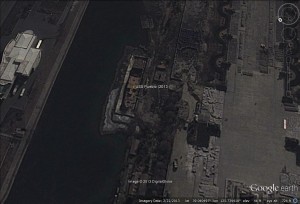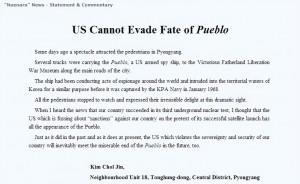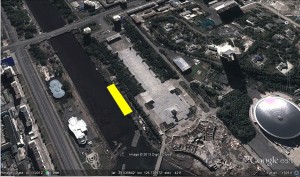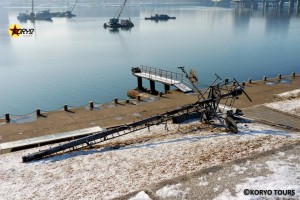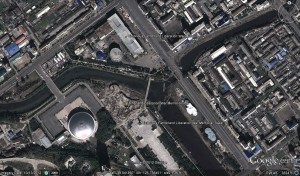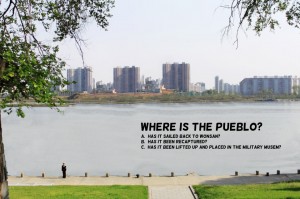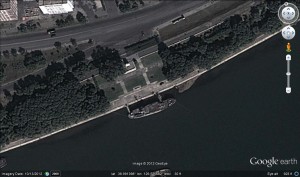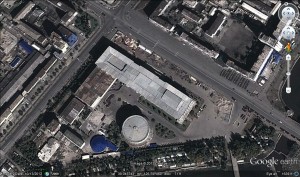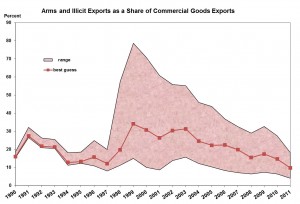These new sanctions are in response to the DPRK’s third nuclear test. Here is a link to information on UNSC resolution 2094, which the UNSC passed in response to the same test.
Here is the full statement by the Treasury Department:
___________________
Treasury Sanctions Bank and Official Linked to North Korean Weapons of Mass Destruction Programs 3/11/2013
WASHINGTON – To impede North Korea’s ballistic missile and weapons of mass destruction (WMD) programs, the U.S. Department of the Treasury today designated the Foreign Trade Bank (FTB), North Korea’s primary foreign exchange bank, pursuant to Executive Order (E.O.) 13382, which targets proliferators of weapons of mass destruction (WMD) and their supporters. Treasury is also designating Paek Se-Bong, the chairman of North Korea’s Second Economic Committee (SEC) under E.O. 13882.
North Korea’s nuclear and missile proliferation activities violate the UN Security Council regime, comprised of resolutions 1718 (2006), 1874 (2009), 2087 (2013), and 2094 (2013), destabilize the region, and undermine the global nonproliferation regime. The international community has condemned North Korea’s WMD proliferation activity, most recently in last week’s UN Security Council Resolution 2094. Today’s designations of FTB and a senior member of the North Korean government linked to the DPRK missile program, follow actions taken March 7, 2013 by the Treasury Department against China-based representatives of the Korea Mining Development Corporation (KOMID) and Tanchon Commercial Bank (TCB).
“North Korea uses FTB to facilitate transactions on behalf of actors linked to its proliferation network, which is under increasing pressure from recent international sanctions. The United States will take strong measures to protect its financial system from this type of illicit activity, and we urge financial institutions around the world to be particularly wary of the risks of doing business with FTB,” said Under Secretary for Terrorism and Financial Intelligence David S. Cohen.
The U.S. Department of State is today also designating Pak To-Chun, Chu Kyu-Chang, and O Kuk-Ryol. To view the release, click here.
By designating FTB, the Treasury Department is targeting a key financial node in North Korea’s WMD apparatus, and cutting it off from the U.S. financial system. FTB is a state-owned bank established in 1959. FTB acts as North Korea’s primary foreign exchange bank and has provided key financial support to the Korea Kwangson Banking Corporation (KKBC). KKBC was designated under E.O. 13382 in August 2009 for providing financial services in support of the previously designated entities TCB and the Korea Hyoksin Trading Corporation (Hyoksin). Hyoksin used its connections to KKBC to purchase dual-use equipment in 2008.
FTB has also facilitated millions of dollars in transactions that have benefited KOMID—North Korea’s premier arms dealer—and its financial arm, TCB. North Korea’s Second Economic Committee oversees the production of North Korea’s ballistic missiles and directs the activities of KOMID. TCB, KOMID and Hyoskin were designated by the UNSCR 1718 Committee in April 2009.
Paek Se-Bong is the chairman of the SEC. The SEC, which oversees the production of North Korea’s ballistic missiles and directs the activities of KOMID, was previously designated by the U.S. State Department in August 2010. Paek Se Bong is also an alternate member of the Central Committee of North Korea’s Workers Party and a member North Korea’s National Defense Commission.
This designation generally prohibits transactions between the designees and any U.S. person, and freezes any assets they may have under U.S. jurisdiction.
Identifying information:
Name: Foreign Trade Bank of the Democratic People’s Republic of Korea
AKA: North Korea’s Foreign Trade Bank
Location: FTB Building, Jungsong-dong, Central District, Pyongyang, North Korea
SWIFT/BIC: FTBD KP PY
Name: Paek Se-Bong
AKA: Paek Se Pong
DOB: 21 March 1938
Title: Chairman, Second Economic Committee
ADDITIONAL INFORMATION
1. Here is a summary in the Daily NK.
2. Here is the Treasury Departments DPRK Resource Center Page.
3. Here is the State Department press release which includes additional sanctioned individuals.
4. Here is coverage in the Hankyoreh.
5. Stephan Haggard on the sanctions.
6. The EU also imposed sanctions. The US wants them expanded to cover the DPRK’s Foreign Trade Bank.

